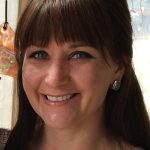Each year the Oncofertility Conference brings together a diverse group of professionals who all share a passion for oncofertility. Oncofertility is a field that brings together a variety of different disciplines, backgrounds, and levels of experience. All conference attendees are encouraged to interact freely and it is not unusual to see an attending physician with 25 years experience engaged in a conversation with a first year postdoc, a high school student, and a humanities scholar. Alot can be learned from each other and it is important we continue to educate the next generation of oncofertility leaders.
Below is a personal experience from Austin Armstrong, a second year medical student from the University of Kansas School of Medicine-Wichita, who attended this year's conference for the first time.
In early November, I had the opportunity to attend the Oncofertility Conference at Northwestern University. As a second year medical student from KU School of Medicine-Wichita, this was both my first medical conference attendance and poster presentation. I have been involved in oncofertility for roughly six months looking predominantly at ovarian tissue cryopreservation, so hearing the respective updates from the entire field of oncofertility was an amazing experience. In particular, I was impressed with how far the field has come while listening to updates on male fertility from Dr. Orwig and the uterus transplant trial from Dr. Dahm-Kähler. Dr. Woodruff asked me what I thought of the conference and I told her that it blew my mind how advanced the field was. She laughed and mentioned that this field was in the business of “blowing minds.”
On the first day of the conference, I attended the first Fellow Education Symposium. As a second year medical student (all didactic learning, no clinical experience), being in a clinical case small group with medical fellows and attending physicians was intimidating. However, my group was helpful and welcoming, making sure I understood the cases I wasn’t familiar with. Being able to discuss the small cases with medical professionals really strengthened my understanding. This culminated with my group having me “defend” and provide our rationale for how to proceed in a clinical scenario. Being partnered with my small group and approaching the cases was educational and gave me an idea the issues that fellows in the field encounter on a regular basis, as well as their thought process and approach.
The second day of the conference was marked with various talks and the poster presentations. I had plenty of time to catch up with colleagues as well as meet others in attendance. Having read a myriad of papers during my project and preparing for the conference, meeting the authors of these same papers was akin to meeting celebrities! My poster over ovarian tissue cryopreservation in pediatric females through the NPC received lots of positive feedback, and I was even able to meet surgeons who had operated on some of the NPC patients. Overall, the atmosphere of the conference was both welcoming and educational. In leaving the conference this year, I am inspired to continue my involvement in the field of oncofertility and perhaps someday I will contribute to “blowing minds.”
Save the date for the 2017 Oncofertility Conference: November 14-16, 2017 in Chicago, IL!


 By: Lauren Ataman-Millhouse -
By: Lauren Ataman-Millhouse -